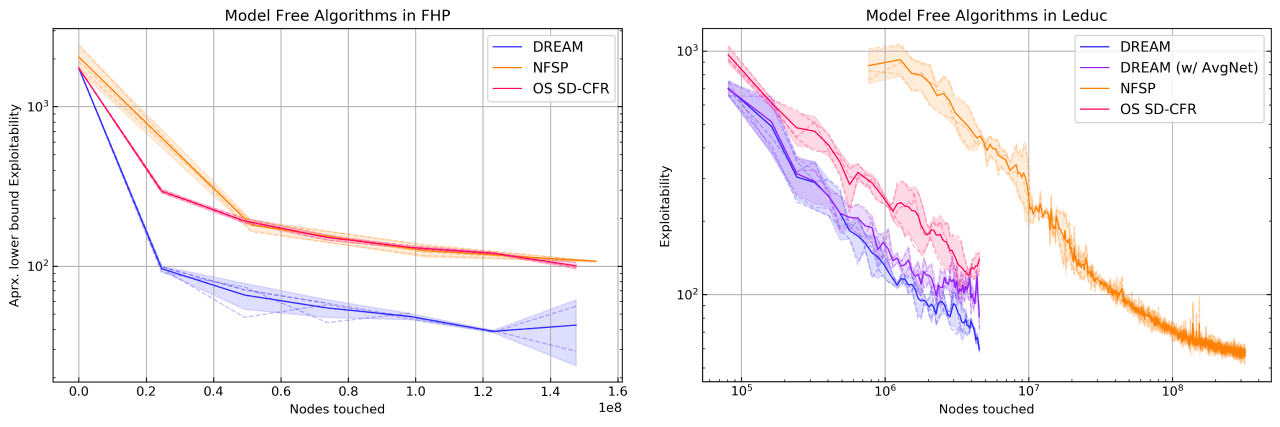Deep Reinforcement Learning from Self-Play in Imperfect-Information Games
Many real-world applications can be described as large-scale games of imperfect information. To deal with these challenging domains, prior work has focused on computing Nash equilibria in a handcrafted abstraction of the domain. In this paper we introduce the first scalable end-to-end approach to learning approximate Nash equilibria without prior domain knowledge. Our method combines fictitious self-play with deep reinforcement learning. When applied to Leduc poker, Neural Fictitious Self-Play (NFSP) approached a Nash equilibrium, whereas common reinforcement learning methods diverged. In Limit Texas Holdem, a poker game of real-world scale, NFSP learnt a strategy that approached the performance of state-of-the-art, superhuman algorithms based on significant domain expertise.
PDF Abstract



 2018 Data Science Bowl
2018 Data Science Bowl